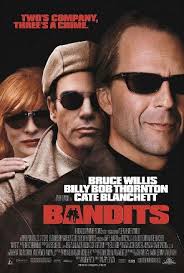A guest post by Robert J. McCarter.
 I saw a UFO once. UFO as in Unidentified Flying Object. As in, I have no idea what it was. None. Not to this day.
I saw a UFO once. UFO as in Unidentified Flying Object. As in, I have no idea what it was. None. Not to this day.
This was in the mid-seventies. I was around twelve and living on an eighty acre ranch outside of Globe, Arizona. My older brother and I were in the living room of the historic ranch house which had a large window that overlooked our barn, pasture, and Icehouse Canyon as it wound its way down from the Pinal Mountains. The area is a hilly desert covered with prickly pear cactus, mesquite trees, and crawling with ants and scorpions.
My brother and I were being brothers (in other words, bickering). He was seated facing away from the window and I was standing looking out at the view when something caught my eye. I saw a round white shape, a bit diffuse at the edges, slowly and silently crossing the blue sky down the canyon a ways. It’s pace and elevation were steady, it was perfectly round, and because of its diffuse, non-reflective nature I couldn’t tell how far away it was.
I started freaking out, telling my brother that I was seeing a “UFO.” It couldn’t be a plane, they aren’t round and silent. It couldn’t be a cloud, the shape was too uniform. It couldn’t be a balloon, again the shape and the absolutely steady motion.
My brother didn’t believe me, thought I was messing with him, and never turned around while I watched the UFO dip slightly and then slip between two hills about half a mile away. This gave me perspective on its distance–it was closer than I had first thought, maybe 150 feet up, and fairly small, about two or three feet in diameter.
I probably would have forgotten about the incident except that a day or two later, I was outside looking in the same direction when a remote control airplane took a similar flight path (it was a bit closer but was flying across that canyon at the same height). The plane made a ton of noise and it really struck me then just how quiet and strange my UFO was.
 Guest Writer Bio:
Guest Writer Bio: Robert J. McCarter is very comfortable writing about characters as long as one of those characters is not himself (though the Fictorians got him to break that cardinal rule today). Actually Robert is anything but comfortable speaking (or writing) of himself in the third person, he finds it pretentious and silly. So, let’s drop all that usual bio crap. For more, head over to his website.




